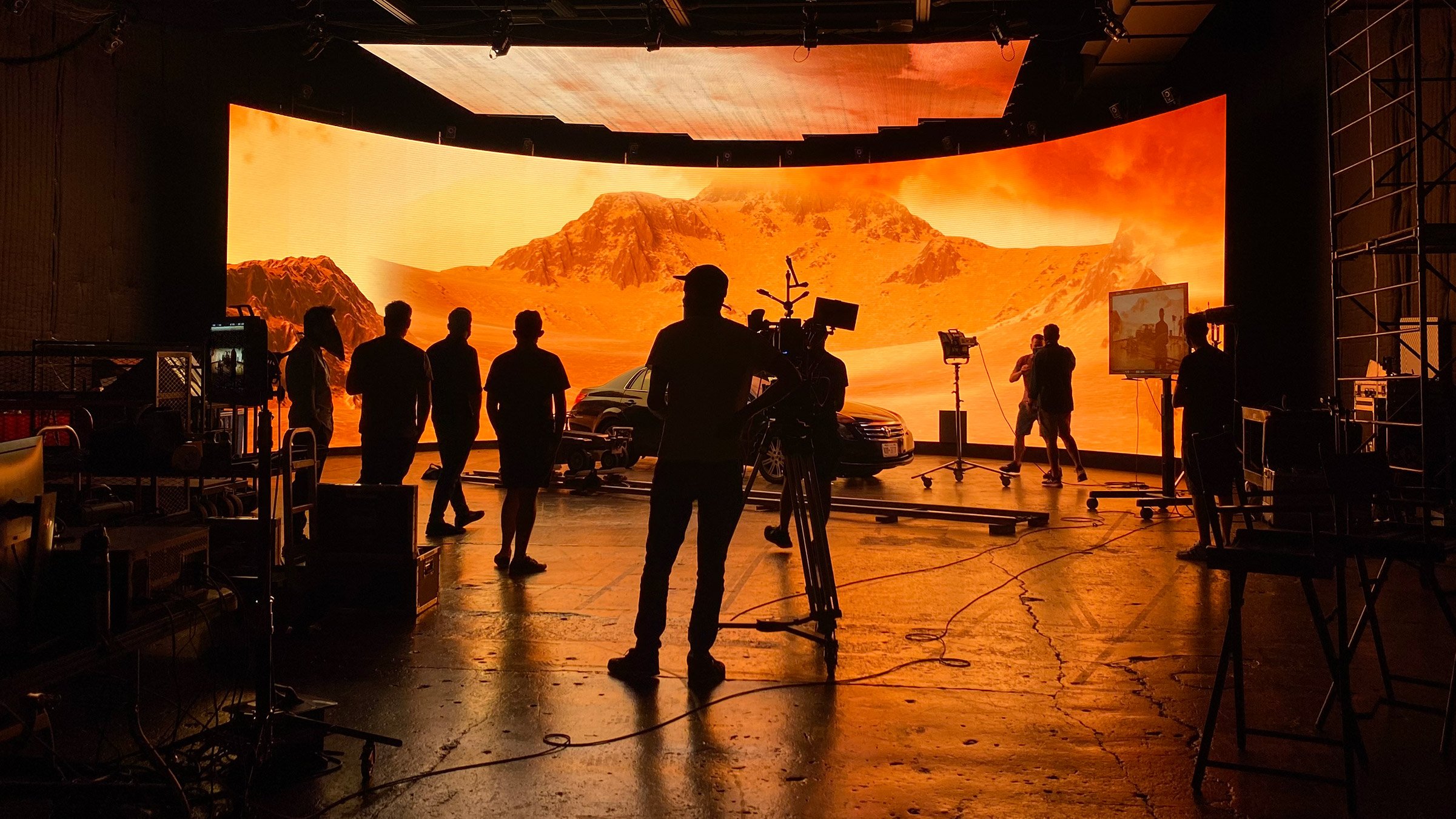Blockchain technology has began to permeate an essential aspect of South Korean culture, the K-pop business. South Korea's K-pop industry, famed for its distinct artistic expression and worldwide clout, is entering a new era of digital innovation. The K-pop industry, as represented by firms such as Modhaus, has begun to use blockchain technology, particularly non-fungible tokens (NFTs) and blockchain-based voting systems, to create new forms of engagement for fans as well as artists and music corporations.
In What Ways is AI Disrupting the Dance Industry?
Horizon 2028 Part 2: Audience and Industry Interview Perspectives
Horizon 2028 Part 1: The Future of Global Content Licensing
This report considers content and distribution strategies that allow Paramount Global Content Distribution (PGCD) to maximize subscriber growth and external licensing revenue. Given the symbiotic nature of licensing deals among studios, the research team focused on how PGCD can remain competitive in the streaming landscape with a balanced mixture of internally and externally licensed properties.
Hurdles Made of Dollar Bills: The Gatekeeping of a College Education in Musical Theatre
For this analysis, author Ashley Offman has analyzed Playbill's Top 10 List from the most recent Broadway season. To fully understand the opportunities available for those who are trying to enter the industry, Ashley analyzed the costs of the current (as of November 2023) top 10 most represented schools on Broadway, the competition surrounding the process, and the possible consequences of the Supreme Court’s ruling to end affirmative action.
Engaging the Next Generation Audience for the Legacy Music Artist: Les Paul Case Study
The following research was designed to gain an understanding of the legacy artist to further develop the Les Paul brand and increase recognition surrounding his name. The research team examined strategies for re-introducing Paul in an over-saturated media climate to younger generations through both quantitative and qualitative analysis.
To Stream or Not To Stream: Is that the right question anymore?
The current status of digital programming and investment varies widely across the arts and cultural sector. Some organizations have abandoned the streaming technology they experimented with, while others continue to incorporate digital programs and performances into their offerings. The following research reveals U.S. streaming trends and audience behaviors.
9 Ways Blockchain is Changing the Film Industry
AI and Virtual Production: The Past Meets the Future
Technology has played a critical role in the film industry since its inception. Advances in the film industry are always closely related to technological advances in society, integrating them quickly into the filmmaking process. Almost every aspect of filmmaking, from pre-production to post-production, from digital cameras, editing software, sound and music, distribution, exhibition, and of course, special effects, has undergone major changes and has evolved over the last 190 years.
Contemporary, traditional film production involves building physical sets, scouting locations, and coordinating large crews and equipment, all of which can be time-consuming and expensive. To overcome some of these "problems" or “needs” was born what we know today as Virtual Production. Virtual production has and will be further enhanced by the opportunities afforded by artificial intelligence.
Massive Software’s Influence on Popular Fantasy Film
Massive Software creates hordes of fantasy armies using Artificial Intelligence and in doing so it has changed the fantasy entertainment game. Their realism is largely due to fuzzy logic, a “way to create naturalistic and subtle behavior” that human viewers will interpret as realistic and powerful. This combined with emergent technology offers a wide array of opportunity for creators.
Jazz Artists and the Business of Music: Digital Collaborations and Live Streaming
Throughout history, jazz has been on the cutting edge of social and cultural change. It has always represented a means of freedom and self-expression in both the brightest and darkest of times. Jazz artists have historically pushed the boundaries of their own genre, as well as others. How does the genre continue to transform in the digital age?
AI in Spotify’s New ‘AI DJ’
While Spotify has been a frontrunner in the AI field for a decade, its increased infusion of AI into its algorithmic content suggestions has put it into the spotlight with its ‘AI DJ.’ Consumers return again and again to Spotify largely for its enhanced personalization that few other streaming platforms can match. While AI is central to that personalization, it hasn’t surfaced without baggage and some consumer retaliation. It is also worth considering how this technology will further perpetuate algorithmic biases that disproportionately affect Black musicians.
Multilingual Technology for Global Entertainment: A Case Study of Netflix
2022 Top 10 Articles
Every year we review our analytics to highlight what you, our readers, have found the most compelling. In 12 short months, we have witnessed waves of new technology erupt onto the marketplace, like OpenAI’s Dall-e, and others tumble into chaos, most notably cryptocurrency. The top 10 show how YOU have followed the change.
The Challenge to Keep Millennials and Gen Z Interested in Long-Form, High Quality Content: Part One
Millennial and Gen Z consumers have forever altered the entertainment landscape. Shifts in their viewing habits are being motivated by a sense of community, increasingly short attention spans, and pragmatic decision-making spurred by coming of age in a digital and internet-driven environment. To fulfill these motivations, they have increasingly turned their attention to short-form content. this article offers insights on how and why Gen Z and Millennial consumers watch content.
Managing Privacy, Identity, And Virtual Worlds In Video Games: Part Two
Managing Privacy, Identity, and Virtual Worlds in Video Games: Part One
The video gaming business is now a world-leading entertainment industry with nearly 180 billion U.S. dollars in market value (Statista, 2021). As more private information and in-game data are collected and utilized to support gaming, it may also threaten the safety of gamers' privacy. Therefore, it is essential for gaming companies to understand the business implications of collecting and using gamers’ private information. There have been studies that take account of the privacy landscape across industries, but privacy in the gaming industry remains less examined given its complexity and rapid recent growth.
Spotify's Algorithm: Helping or Hurting Musicians?
The year is 1870, 7 years before the invention of the phonograph by Thomas Edison. As a musical artist, if you wanted to distribute your content to an audience, you did so through sheet music, either painstakingly copied by hand, or if you were lucky, replicated on some kind of a printing press. Music distribution has come a long way since then. Artists can upload music to platforms like TikTok or YouTube with the click of a button. But how has this changed the industry?
The most prolific way that people engaged with music in 2020 was streaming platforms, of which, Spotify continues to be the most popular. Even though it’s easier than ever for artists to upload content to a large audience, the question remains, are personalization algorithms and streaming services through Spotify harming or helping musical artists?
An Analysis of the Top 50 Webtoons on Webtoon Canvas
Naver Webtoon, introduced in “Hallyu 3.0: The Webtoon Takeover,” is the world’s leading webcomics reading application with over 72 million monthly users. Much like Youtube and Spotify, Webtoon manages a user-generated content platform featuring the works of over 130,000 amateur and professional cartoonists. Comics that are uploaded to Webtoon’s user-generated content section, Webtoon Canvas, and have at least 1,000 subscribers and 40,000 monthly page views earn a 50% share of Webtoon’s advertising revenue. Webtoon offers additional payout opportunities including a creator rewards program and their Original Series publishing program that offers exclusive rights publishing contracts and promotion through the platform. This article returns to the question posed in the previous article: How to content generators incorporate Webtoon into their professional practice and to what measures of success?
Hallyu 3.0: The Webtoon Take Over
The comics industry is undergoing a digital revolution without the forces of giant publishers Marvel or DC. It is being led by big tech, big-data, and its intermediation between audiences and individual creators. At the center of this global revolution is a popular app: Webtoon. Webtoon currently outpaces its competitors by an order of magnitude with 50 million+ downloads in the United States.

























